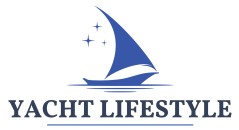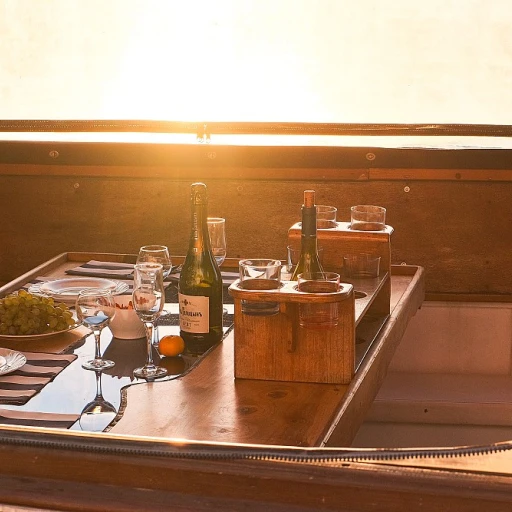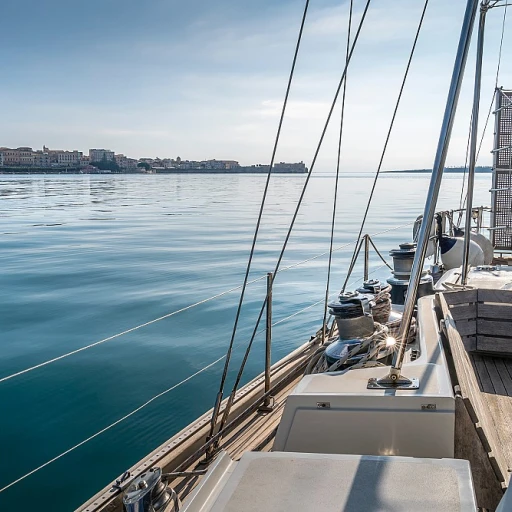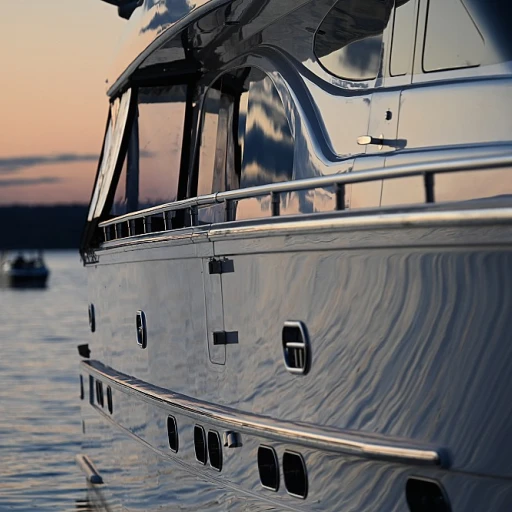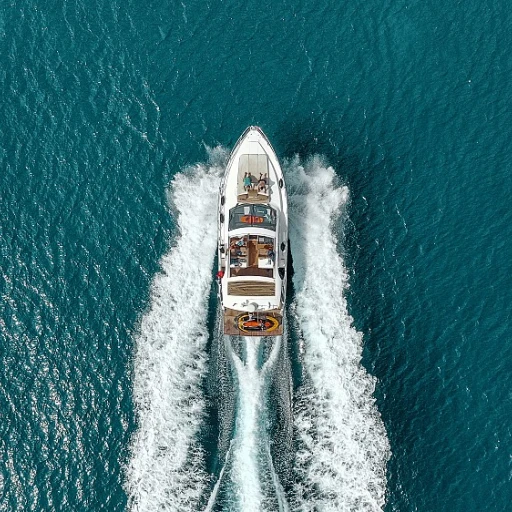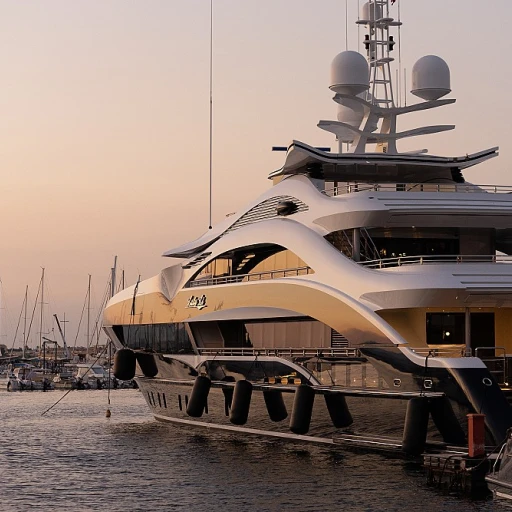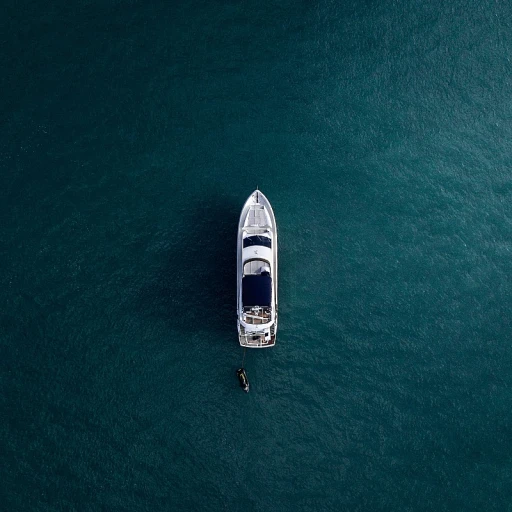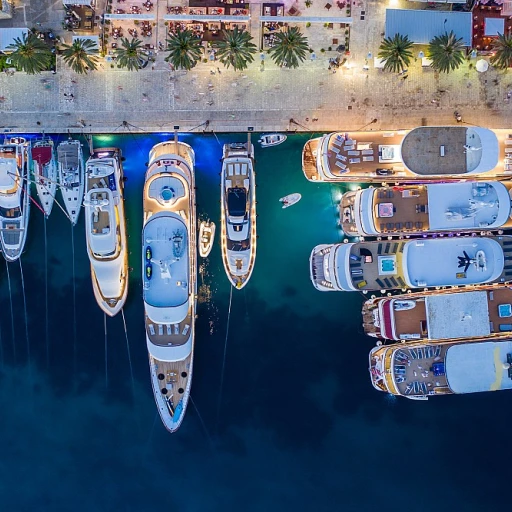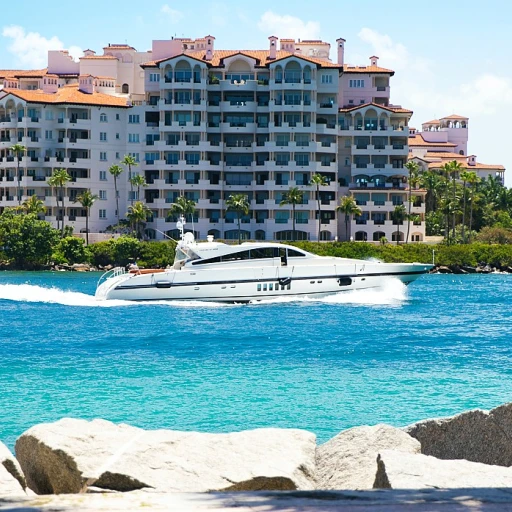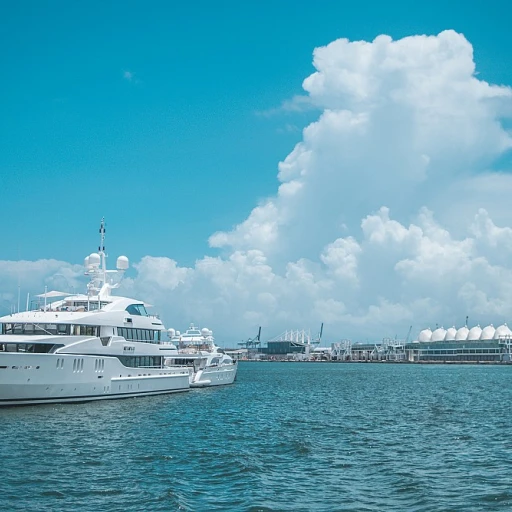Understanding Your Yacht's Requirements
Assessing Your Yacht's Specific Needs
Choosing the right crew for your yacht is a critical aspect of yacht ownership and management. To ensure smooth sailing, the first step involves understanding your yacht's specific requirements. Consider the size yacht you own and what types of services you wish to offer or experience onboard. Whether it's a charter yacht or a private vessel, each yacht's demands vary, and so does its crew composition.
For larger yachts, there is a need for a more extensive crew to cater to the diverse requirements of maintaining the yacht and attending to guests. This typically includes a captain, chief engineer, head chef, chief steward, interior crew, and deck crew members. Each of these roles provides essential services that contribute to the overall efficiency and luxury experience on board.
On the other hand, smaller yachts may require a more concise crew, often with members handling multiple responsibilities. Regardless of the yacht size, having experienced crew members who excel in their respective fields is crucial to guaranteeing seamless operations. The yacht's purpose, whether for private use or as a charter, also influences the type of crew you need. Charter yachts often necessitate crew members skilled in customer service and hospitality to meet the high expectations of guests.
Additionally, assessing the yacht’s technological requirements and systems is vital in determining the technical expertise needed. For instance, some yachts equipped with advanced systems might require a crew with specific engineering prowess. Moreover, integrating enhancements like premium boat accessories could be beneficial in upgrading the sailing experience, thus potentially influencing the expertise required from the crew.
By comprehensively evaluating your yacht's unique needs and objectives, you ensure the selection of a crew that aligns with your vision and the high standards of the yachting industry. This foundational understanding aids significantly in the subsequent processes of crew selection, training, and management.
Key Roles and Responsibilities on a Yacht
Crucial Roles and Responsibilities Aboard
Understanding the key roles and responsibilities on a yacht is pivotal for any yacht owner or manager aiming to operate efficiently. Depending on the yacht size, the number of crew members needed and their specific duties can vary significantly.- Captain: The captain holds the ultimate authority on board and is responsible for the yacht's safe navigation and operation. They coordinate with all crew members, ensuring smooth operation and compliance with maritime regulations.
- First Mate: Working closely with the captain, the first mate manages the deck crew and assists with navigational duties and safety protocols.
- Chief Engineer: This role involves overseeing the technical aspects of the yacht, ensuring all mechanical and electrical systems run smoothly and efficiently.
- Head Chef: The head chef plays a crucial role in delivering high-quality meals tailored to guests' preferences, which enhances the onboard experience.
- Chief Steward/Stewardess: This role focuses on the comfort and service for guests, managing housekeeping, dining services, and often organizing various events on board.
Factors Influencing Crew Selection
Criteria for Selecting the Perfect Yacht Crew
In the yachting industry, selecting the right crew is not just about filling positions but ensuring that each crew member complements the yacht's requirements and enhances the guest experience on board. Several factors influence this selection process, each crucial to creating a cohesive and efficient team.- Yacht Size and Type: The size of the yacht plays a significant role in determining the number of crew required. Larger yachts will naturally require more crew members, including having specialized roles such as a chief engineer and head chef to cater to the demands of both maintaining the vessel and providing exceptional guest service.
- Type of Yacht Charter: Whether the yacht is private or a charter yacht impacts the type of service needed. A charter yacht often demands crew members with a high level of customer service experience, as they will interact with diverse guests regularly. Excellent service is expected, and the crew members need to be prepared for varying preferences and cultural needs.
- Role-Specific Experience: Each role, from captain to deck crew, has tailored requirements. A captain with several years of experience navigating various waters can offer valuable insights during both daily operations and any unforeseen challenges. Similarly, a chief steward and interior crew need the expertise to maintain the luxury standards expected on board.
- Skills and Qualifications: Depending on the job role, crew members might need specific certifications or training. For instance, a chef might be required to have culinary qualifications, while a chief engineer will need technical licenses to ensure the safety and operational integrity of the yacht.
- Interpersonal Skills and Team Dynamics: A crew's ability to work as a cohesive unit is paramount. This involves not only technical expertise but also the capability to communicate effectively with each other and guests, maintaining a positive atmosphere on board for smooth operations day-to-day.
- Cultural Compatibility: On international voyages or among international guests, understanding various cultures can enrich the guest experience profoundly. Crew members who respect and understand cultural differences contribute to a welcoming and inclusive atmosphere on board.
Hiring Process and Best Practices
Recruitment and Best Practices for Yacht Crew
When hiring crew for your yacht, a structured approach is essential to attract the right talent. The hiring process involves several critical steps that combine industry standards with personal preferences to ensure the right fit for both the yacht and its guests. Here's how to efficiently navigate the hiring process:- Define Role-Specific Requirements: Understanding your yacht's requirements is a pivotal part of the hiring process. Knowing exactly what each role demands, whether it's the experience needed for a captain or the culinary skills of a head chef, is key. For larger yachts, the need for a chief engineer or a chief steward could be more pressing due to intricate technical operations and guest services.
- Search and Selection: Utilize dedicated yachting industry job boards and agencies specializing in yacht crew to find crew members with a proven track record in providing exceptional service. Consider hiring full-time if you need crew for consistent operations or opt for temporary crew for specific events or yacht charters.
- Screening and Interviews: Develop a robust screening process to weed out unsuitable applications. Structured interviews will help assess the professional skills, previous work experiences, and interpersonal qualities of potential crew members.
- Due Diligence: Perform thorough background checks, including references from previous employers, to verify candidates’ experiences and credentials. This step is crucial for roles such as chief engineer or deck crew, where precision and safety are paramount.
- Contract and Onboarding: Follow best practices by drafting detailed agreements that outline the roles, responsibilities, and expectations for each crew member. Once hired, onboard the new crew efficiently, highlighting the yacht's protocol, emergency procedures, and daily routines to ensure a seamless integration on board.
Training and Certification Requirements
Credentials and Qualifications for Crew Members
When it comes to recruiting for your yacht, one of the most critical aspects is ensuring that your crew members possess the necessary training and certification. The safety and satisfaction of guests onboard largely rely on the competence of your team.Key Certifications in Yachting
Yachting industry demands specific certifications that verify the skills and knowledge of the crew. Here's what you need to look for:- STCW Certification: The Standards of Training, Certification, and Watchkeeping (STCW) is a must for most crew members. It covers basic safety training essential for work at sea.
- Medical Certification: All crew members, including the captain and chef, should have an ENG1 or equivalent medical certificate, ensuring they are fit to work on board.
- Specialized Training: Depending on the role, additional qualifications may be needed. For instance, deck crew should be trained in seamanship, while the chief engineer needs technical certifications relevant to the yacht's machinery.
Role-Specific Expertise
For each crew position, specific expertise and skills are required:- Captain: Leadership and extensive navigation skills are critical for a captain. They must have experience with vessels similar in size and type to your yacht.
- Chef: A chief chef should provide exceptional culinary service, catered to guest preferences. Prior experience on large yachts can be a plus.
- Deck Crew: Their work includes maintenance and ensuring guest safety during activities. Experience on boats or yachts of your size is highly beneficial.
- Interior Crew: These members need skills in hospitality and service, ensuring guests are comfortable throughout their stay on a charter yacht.
Importance of Continuous Training
The yachting industry is ever-evolving. It's crucial for crew members not only to meet initial certification but to engage in ongoing training, ensuring their skills stay sharp and up-to-date. Engaging in workshops, courses, and seminars not only enhances the crew's capabilities but also boosts morale and job satisfaction, leading to better service for the yacht owner or guests. Training and maintaining highly qualified crew ensures not only compliance with industry standards but also enhances the overall yachting experience, making it rewarding for both the yacht owner and the crew members alike.Managing and Retaining a Happy Crew
Fostering a Positive Work Environment on Board
Creating a supportive and productive atmosphere for your yacht crew is crucial for both the crew's satisfaction and the seamless operation of the yacht. As yacht owners and captains well know, a happy crew is integral to delivering excellent service and maintaining guest satisfaction during a yacht charter.- Open Communication: Encourage open lines of communication between crew members and leadership. Transparent communication fosters understanding, reduces misunderstandings, and helps address issues before they escalate.
- Acknowledgment and Rewards: Recognize the hard work and dedication of your crew members by acknowledging their achievements. Offering rewards, such as bonuses or additional time-off, can greatly enhance morale.
- Continuous Training: Provide opportunities for further skill enhancement and certification. Offering training programs not only improves service quality but also shows a commitment to your crew's career development.
- Respect for Work-Life Balance: Understand the need for downtime and ensure your crew members have adequate rest periods. This is especially important for full-time staff on larger yachts, where the line between work and personal life can blur.
- Diverse Cuisine and Recreation: The onboard chef plays a vital role in catering to diverse dietary preferences and ensuring that all meals delight the palate. Additionally, encourage recreational activities and arrange team-building exercises, allowing the crew to bond and relax.
- Career Growth Opportunities: Offer pathways for career advancement within the yachting industry. Whether a crew member is aiming to become a chief engineer or head chef, defining a clear career trajectory is essential for motivation and retention.
